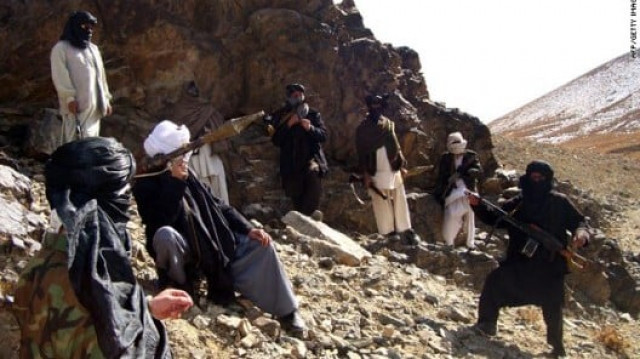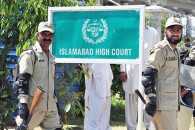Not all extremists are terrorists, says ex-jihadist
"All terrorists are extremists but not all extremists are terrorists,”

Not all extremists are terrorists, says ex-jihadist
Majid Nawaz explained that an extremist may impose his ideology on people through non-violent means as compared to a terrorist. However, he quickly added that both are equally reprehensible and must be condemned openly by the civil society.
The NGO Individualland organised a seminar ‘Citizens as Active Stakeholders of Peace’ on Friday, when 32-year-old Majid Nawaz, spoke on peace.
Nawaz, a British citizen of Pakistani origin was a member of Hizb ut Tahrir until 2007 and has served five years in an Egyptian jail. After resigning from the extremist organisation, he became the director of a UK-based Quillam Peace Foundation.
“There’s a dire need for members of the civil society to counter the powerful narrative of jihadists,” said newly transformed peacenik, Nawaz.
“The Islamists’ propaganda claims that since only Muslims are being attacked all around the world, Islam as a religion is under threat,” he said. “Nothing could be further from the truth,” he added, admitting that he himself was involved in spreading such narratives.
He cited the recent attack on Ahmedis in Lahore as an example of how extremism can be propagated through law. Nawaz believed that Ahmedis have been facing religious persecution for decades because of the country’s laws against them.
“Such laws do not mean they are right even if they were passed by the majority in a parliament,” he stressed, “Even Hitler was elected by the majority but that did not mean that the fascist ideology he propagated was right.”
“The terms jihad and khilafat have been hijacked by these extremists and terrorists and as citizens of the world, we must not allow these terms to be monopolised,” he said.
Nawaz believed that Quranic concepts are being manipulated by terrorists for their violent causes and must be re-contextualised.
It is a myth that extremists are uneducated people and because of a lack of education they turn towards violent extremism, he said.
He gave his own example where he became radicalised during the time he was pursuing a Masters degree in political theory from the London School of Economics (LSE).
“We forget that Osama bin Laden was an engineer. His deputy Aymal al Zawahiri was a medical doctor. Ahmed Omar Saeed Sheikh, the British citizen of Pakistani descent who murdered Daniel Pearl in Karachi, studied at the LSE. Faisal Shahzad, the would-be Times Square bomber, graduated from a business school in the US,” he pointed out.
“Every individual in the country needs to stand up and take responsibility for the situation. Else they will have no one, but themselves to blame,” Nawaz warned.
Speaking at the seminar, director of the Centre for Peace and Conflict Jami Chandio said that the way forward for citizens to become stakeholders in peace was to take part in the political process of the country.
“Individuals may be flawed but the process of democracy is not,” he said, adding that people should not be disheartened with the current lot of their leaders. Instead, they should work towards improving the system through active participation. Gulmina Bilal, Director Individualland Pakistan, Amir Rana, Director Pakistan Institute for Peace Studies and Nazir Leghari from Daily Awam were among the others who spoke.
Published in The Express Tribune, June 26th, 2010.



















COMMENTS
Comments are moderated and generally will be posted if they are on-topic and not abusive.
For more information, please see our Comments FAQ